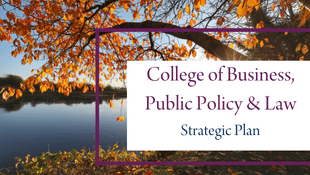-
Courses

Courses
Choosing a course is one of the most important decisions you'll ever make! View our courses and see what our students and lecturers have to say about the courses you are interested in at the links below.
-
University Life

University Life
Each year more than 4,000 choose University of Galway as their University of choice. Find out what life at University of Galway is all about here.
-
About University of Galway

About University of Galway
Since 1845, University of Galway has been sharing the highest quality teaching and research with Ireland and the world. Find out what makes our University so special – from our distinguished history to the latest news and campus developments.
-
Colleges & Schools

Colleges & Schools
University of Galway has earned international recognition as a research-led university with a commitment to top quality teaching across a range of key areas of expertise.
-
Research & Innovation

Research & Innovation
University of Galway’s vibrant research community take on some of the most pressing challenges of our times.
-
Business & Industry

Guiding Breakthrough Research at University of Galway
We explore and facilitate commercial opportunities for the research community at University of Galway, as well as facilitating industry partnership.
-
Alumni & Friends

Alumni & Friends
There are 128,000 University of Galway alumni worldwide. Stay connected to your alumni community! Join our social networks and update your details online.
-
Community Engagement

Community Engagement
At University of Galway, we believe that the best learning takes place when you apply what you learn in a real world context. That's why many of our courses include work placements or community projects.
Tab 1 Content
Public Opinion and the Language of Sentencing
Dr Rory Kelly has co-authored a report with colleagues at the Sentencing Academy to assess public understanding of key sentencing terminology in England and Wales. The report draws on a public survey conducted by YouGov and funded by the University and the Academy. Key findings from the report were as follows:
- The term ‘victims services levy’ is better understood than the present term ‘victim surcharge’.
- The term ‘victim impact statement’ is better understood than the present term ‘victim personal statement’.
- There was a lack of understanding of the consequences of breaching a community order.
- The term ‘suspended sentence of imprisonment subject to good behaviour’ was preferred to the current term ‘suspended sentence order’.
- There was a strong preference for describing sentences of imprisonment with reference to their custodial and non-custodial components. That would mean, for example, describing a sentence as one of two years in prison and three on licence as opposed to the current norm of describing that sanction as ‘five years’ imprisonment’.
- Attaching the minimum term to be served by the offender is the most successful way of informing the public about the meaning of a sentence of life imprisonment.
- Where a person is sentenced to a determinate sentence of imprisonment for a non-violent offence, respondents thought that they should serve 59% of that sentence in prison.
- Where a person is sentenced to a determinate sentence of imprisonment for a violent offence, that percentage rose to 83%.
- There were notably mixed views on the Government’s recent proposals to allow for earlier release points subject to an offender progressing toward rehabilitation with marginally more opposition than support for the proposal.
Authors: Rory Kelly, Julian V. Roberts, Jonathan Bild and Raphael Freund
Link: https://www.sentencingacademy.org.uk/public-opinion-and-the-language-of-sentencing/
















